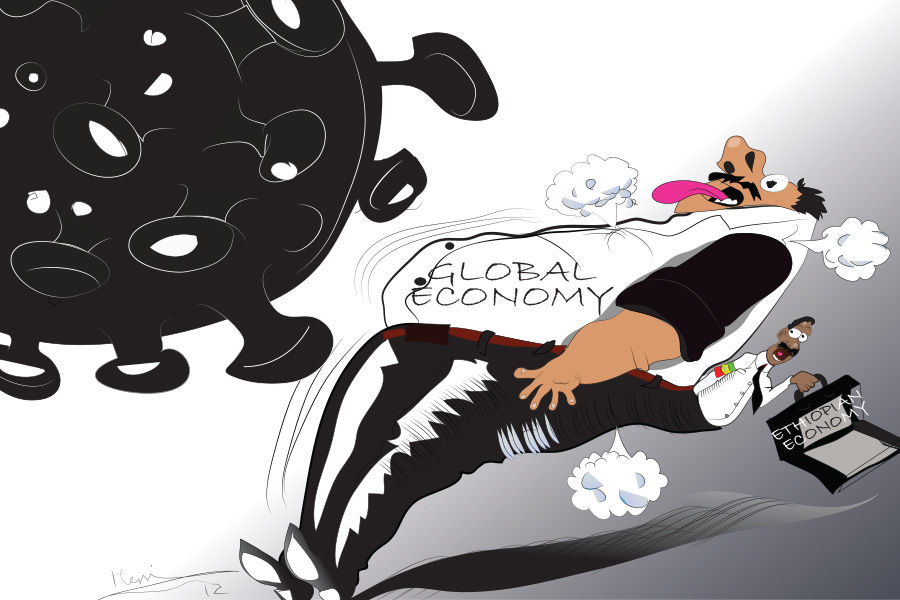
Viewpoints | Aug 05,2023
Jul 1 , 2023
By Daron Acemoglu
Friedrich von Hayek is best known for his influential 1944 polemic "The Road to Serfdom". But his most celebrated work in economics is "The Use of Knowledge in Society", a rather short article on how society uses and acquires dispersed information about economic fundamentals such as preferences, priorities, and productivity.
The article develops a powerful critique of central planning, arguing that no centralized authority can adequately collect and process “the dispersed bits of incomplete and frequently contradictory knowledge which all the separate individuals possess.” Without knowing each individual’s preferences among millions of products, let alone their ideas about where to use their talents most productively and creatively, central planners are bound to fail.
By contrast, market economies can process and aggregate such information both efficiently and effectively. Price signals seamlessly convey data about market participants’ priorities and preferences. When tin becomes scarcer, its price rises, and Hayek explains, all that “users of tin need to know is that some of the tin they used to consume is now more profitably employed elsewhere and that, in consequence, they must economize tin.”
Nor is this just about processing existing data. The market system, Hayek argues, is also better at discovering – or even producing – new, relevant signals: “The ‘data’ from which the economic calculus starts are never for the whole society ‘given’ to a single mind which could work out the implications and can never be so given.”
Although Hayek is celebrated for offering a knowledge-based (or “computational”) critique of central planning, his arguments are best understood as a call for decentralization more broadly. He notes that, “If we can agree that the economic problem of society is mainly one of rapid adaptation to changes . . . the ultimate decisions must be left to the people who are familiar with these circumstances.” Ultimately, Hayek concludes, “We must solve it by some form of decentralization” – namely, through the market economy and the price system.
For decades, Hayek’s arguments provided the basis for rejecting all kinds of regulation. If any regulation of economic activity (such as measures governing the release of new products) or of prices (such as caps or controls) interferes with the functioning of the price system, they will hamper the decentralized process of adaptation to an ever-changing world.
But now, artificial intelligence – especially generative AI models that encode, process, and deploy (via hundreds of billions of parameters) massive amounts of pre-existing information – raises two challenges for Hayek’s argument.
Given AI’s ability to absorb, organize, and interpret data on a massive scale, one might wonder if it could render central planning more efficient than today’s market systems. Such is the hope behind “AI socialism” (or "fully automated luxury communism"): AI will give central planners the means to determine optimal and (supposedly) benevolent economic allocations.
But while AI socialism is an interesting thought experiment, it offers only a superficial critique of Hayek. Even if an AI could do all the computations and data collection that the market economy already does (a very big if), the concentration of power in the hands of a central authority would be a major cause for concern.
The famine that killed five million Ukrainians in the early 1930s was not the result of Stalin's failure to compute the right allocations. On the contrary, he had sufficient information, and he used it to extract as much grain as possible from the region (owing to larger political motivations and possibly a desire to devastate Ukraine).
Hayek’s criticism of central planning goes beyond crunching the existing numbers. As we have seen, it is primarily focused on adaptation to change and thus emphasizes the creation of information as much as its use.
“The sort of knowledge with which I have been concerned,” Hayek writes, “is knowledge of the kind which by its nature cannot enter into statistics.” The implication is that not even an all-powerful large language model (LLM) could deal with the true nature of dispersed information.
But AI also poses a second, deeper challenge to Hayek’s arguments. In the age of generative AIs like ChatGPT-4, should we even presume that markets will facilitate the decentralized use of information?
The technology’s development is being led by Alphabet (Google) and Microsoft, two massive corporations that are very much in the business of centralizing information. Even if other companies can compete with this duopoly, LLMs, by their nature, may require high degrees of centralization. It is all too easy to imagine a scenario in which a large share of humanity gets its information from the same model.
Of course, Google or Microsoft’s control of information is not the same as that of the Communist Party of China. But, as Simon Johnson and I argue in our new book, "Power and Progress: Our Thousand-Year Struggle Over Technology and Prosperity", even seemingly benign forms of centralization bring myriad economic and political costs, depending on who is ultimately in control. In the United States, these costs include rising monopolization of the tech sector, because control of data creates entry barriers, and the development of business models based on constant online engagement and individualized digital ads, which breed emotional outrage, extremism, and echo chambers online, with damaging effects for democratic participation.
Decentralization, therefore, is still desirable. But to foster it in the age of AI, we may need to turn Hayek’s argument on its head – or at least on its side – by embracing regulation, rather than focusing solely on its potential costs.
PUBLISHED ON
Jul 01,2023 [ VOL
24 , NO
1209]


Viewpoints | Aug 05,2023

Viewpoints | Sep 19,2020

Viewpoints | Apr 13,2024

Viewpoints | Jun 21,2025

View From Arada | Feb 22,2020

Sunday with Eden | Dec 25,2018

Commentaries | Oct 19,2019

Commentaries | Feb 23,2019

My Opinion | Sep 18,2021

Editorial | Mar 14,2020

Photo Gallery | 171931 Views | May 06,2019

Photo Gallery | 162165 Views | Apr 26,2019

Photo Gallery | 151927 Views | Oct 06,2021

My Opinion | 136330 Views | Aug 14,2021





Dec 22 , 2024 . By TIZITA SHEWAFERAW
Charged with transforming colossal state-owned enterprises into modern and competitiv...

Aug 18 , 2024 . By AKSAH ITALO
Although predictable Yonas Zerihun's job in the ride-hailing service is not immune to...

Jul 28 , 2024 . By TIZITA SHEWAFERAW
Unhabitual, perhaps too many, Samuel Gebreyohannes, 38, used to occasionally enjoy a couple of beers at breakfast. However, he recently swit...

Jul 13 , 2024 . By AKSAH ITALO
Investors who rely on tractors, trucks, and field vehicles for commuting, transporting commodities, and f...

Oct 4 , 2025
Eyob Tekalegn (PhD) had been in the Governor's chair for only weeks when, on Septembe...

Sep 27 , 2025
Four years into an experiment with “shock therapy” in education, the national moo...

Sep 20 , 2025
Getachew Reda's return to the national stage was always going to stir attention. Once...

Sep 13 , 2025
At its launch in Nairobi two years ago, the Africa Climate Summit was billed as the f...

Oct 5 , 2025 . By NAHOM AYELE
In Meqelle, a name long associated with industrial grit and regional pride is undergo...

Oct 5 , 2025 . By BEZAWIT HULUAGER
The federal government is set to roll out a new "motor vehicle circulation tax" in th...

Oct 5 , 2025 . By NAHOM AYELE
The Bank of Abyssinia is wrestling with the loss of a prime plot of land once leased...

Oct 5 , 2025 . By BEZAWIT HULUAGER
The Customs Commission has introduced new tariffs on a wide range of imported goods i...